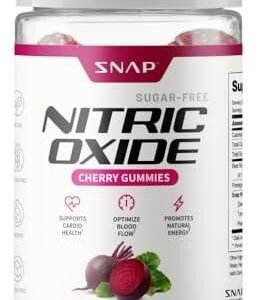In the ever-evolving landscape of health and fitness, dietary supplements have emerged as a critical component for individuals striving to achieve specific fitness goals. Whether the ambition is to enhance athletic performance, support muscle growth, or promote overall well-being, the marketplace is flooded with a plethora of products, each promising transformative results. However, the overwhelming array of options can lead to confusion and misinformed choices. This article aims to provide a comprehensive guide to evaluating supplements, emphasizing the importance of scientific evidence, ingredient transparency, and individual health considerations. By critically analyzing the role of supplements in a fitness regime and establishing a framework for informed decision-making, readers will be equipped to navigate the complexities of supplementation and optimize their efforts towards achieving their fitness aspirations. In a field where marketing claims often outpace scientific rigor, this guide serves as a crucial resource for those committed to making evidence-based choices in their pursuit of health and performance excellence.
Table of Contents
- Understanding the Role of Supplements in Fitness Regimens
- Assessing Ingredient Quality and Efficacy in Supplement Selection
- Tailoring Supplement Use to Individual Fitness Objectives
- Monitoring Progress and Adjusting Supplement Strategies for Optimal Results
- In Conclusion
Understanding the Role of Supplements in Fitness Regimens
As fitness enthusiasts seek enhanced performance and recovery, the inclusion of supplements in their regimen has become increasingly common. However, understanding the role of these supplements is crucial to achieving one’s fitness goals. Supplements can serve various purposes, such as providing essential nutrients that may be lacking in diets, promoting muscle recovery, and improving overall athletic performance. Here are some key supplements athletes often consider:
- Protein Powder: Aids muscle repair and growth.
- Creatine: Enhances strength and power output.
- Branched-Chain Amino Acids (BCAAs): Helps reduce muscle soreness.
- Vitamins (C, D, B-complex): Supports overall health and metabolic functions.
It is critical to evaluate the efficacy and safety of these supplements within the context of individual fitness goals. Factors such as personal dietary needs, fitness levels, and specific health conditions should influence the choice of supplements. Furthermore, the effectiveness of products can vary widely due to differences in quality, absorption rates, and individual responses. To facilitate informed decisions, here is a simple comparison of common supplements:
| Supplement | Recommended Purpose | Typical Dosage |
|---|---|---|
| Protein Powder | Muscle Recovery | 1-2 Scoops Post-Workout |
| Creatine | Increased Strength | 3-5g Daily |
| BCAAs | Reduce Soreness | 5-10g Before/After Workouts |
| Multivitamins | Overall Health | 1 Serving Daily |
Assessing Ingredient Quality and Efficacy in Supplement Selection
To successfully navigate the extensive array of dietary supplements available today, it is crucial to evaluate the quality and efficacy of their ingredients. Not all supplements are created equal; therefore, scrutinizing the source and processing of these ingredients can significantly impact overall results. When assessing ingredient quality, consider the following factors:
- Source Transparency: Verify if the manufacturer discloses where their ingredients are sourced from. High-quality supplements often originate from reputable sources known for rigorous testing.
- Third-Party Testing: Look for certifications from independent organizations that test for purity and potency, ensuring that the product meets stated claims.
- Formulation Synergy: Ingredients should work together effectively. Evaluate whether a supplement’s formulation maximizes the benefits of its components.
In addition to ingredient quality, efficacy must be assessed through clinical support. This involves examining research studies and clinical trials that validate the supplement’s claims. Key points to evaluate efficacy include:
| Ingredient | Benefits | Supporting Research |
|---|---|---|
| Whey Protein | Muscle recovery & growth | University studies support increased muscle synthesis |
| Omega-3 Fatty Acids | Improved joint health & inflammation reduction | Research indicates benefits for cardiovascular health |
| Creatine | Enhanced strength & performance | Multiple clinical trials confirm efficacy in high-intensity training |
By diligently analyzing both the quality of ingredients and the scientific backing for a supplement’s efficacy, consumers can make informed choices that align with their fitness objectives. Prioritizing these aspects fosters a more disciplined and strategic approach to supplement usage, ultimately leading to improved health outcomes and performance enhancements.
Tailoring Supplement Use to Individual Fitness Objectives
Customizing supplement intake to match specific fitness objectives can significantly enhance your overall performance and results. It’s essential to recognize that not all supplements serve the same purpose, and their effectiveness varies based on individual goals. For instance, those focusing on muscle gain may benefit from protein powders, while endurance athletes might prioritize electrolyte supplements. Consider the following categories of fitness objectives and corresponding supplements:
- Muscle Gain: Protein powders, creatine, BCAAs
- Fat Loss: Thermogenics, CLA, L-carnitine
- Endurance: Electrolyte formulas, beta-alanine, nitric oxide boosters
- General Health: Multivitamins, omega-3 fatty acids, probiotics
To determine the right supplements for your personal fitness goals, it is crucial to assess your current diet, training regimen, and lifestyle factors. Tracking your progress can provide insights into what works best for your body. A simple table can be useful for comparing supplement benefits based on your goals:
| Fitness Goal | Recommended Supplements | Expected Benefits |
|---|---|---|
| Muscle Gain | Protein Shake, Creatine | Increased strength, faster recovery |
| Fat Loss | Fat Burners, CLA | Enhanced metabolism, appetite management |
| Endurance | Electrolytes, BCAAs | Improved performance, reduced fatigue |
| General Health | Multivitamins, Fish Oil | Overall wellness, reduced inflammation |
Monitoring Progress and Adjusting Supplement Strategies for Optimal Results
To ensure that your supplement regimen aligns with your evolving fitness goals, it is crucial to regularly monitor your progress. This involves not only tracking your physical changes, such as weight, muscle mass, and performance metrics, but also assessing how you feel overall. Maintaining a comprehensive record can help in identifying patterns and correlations between supplement intake and your results. Consider using a progress journal or digital tracking tools to keep an accurate log of your workouts, dietary intake, and supplement usage. Essential aspects to monitor include:
- Physical performance: Increases in strength, endurance, or recovery times.
- Body composition: Changes in fat percentage and muscle growth.
- Energy levels: Overall stamina during workouts and daily activities.
- Health indicators: Regular check-ups, blood work, and overall wellness metrics.
As you gather data, be prepared to adjust your supplement strategies accordingly. Not every supplement will yield the same results for everyone, and factors such as age, gender, and genetics can significantly influence effectiveness. It’s beneficial to evaluate your intake periodically based on your documented progress. Consider outlining a review schedule, which can include:
| Review Period | Focus Area | Actions to Consider |
|---|---|---|
| Monthly | Initial reactions to supplements | Consult with a professional if necessary |
| Quarterly | Performance metrics and body composition | Adjust dosages or change supplements |
| Biannually | Long-term health evaluations | Overall strategy assessment and goal realignment |
Taking a proactive approach to monitoring and adjusting your supplement strategies ensures that you remain aligned with your fitness objectives. This dynamic process involves staying informed about new findings in nutritional science and supplement efficacy to make the best choices that suit your individual needs.
In Conclusion
the journey toward optimizing fitness goals through supplementation is undeniably complex and requires a discerning approach. As we have explored, the effectiveness of supplements is influenced by a myriad of factors, including individual physiology, dietary habits, and exercise regimens. Critical evaluation of scientific research and a clear understanding of personal health needs are paramount in navigating the vast array of products available on the market.
Ultimately, supplements should be viewed as adjuncts to a well-rounded fitness strategy rather than primary solutions. Comprehensive lifestyle choices, such as balanced nutrition and consistent physical activity, should take precedence. By prioritizing these foundational elements and employing a methodical approach to supplementation, individuals can enhance their performance sustainably and safely.
As we continue to refine our understanding of nutrition science and its applications in fitness, it is essential to remain vigilant against misleading claims and to advocate for transparency and evidence-based practices within the industry. Empowered by knowledge and critical thinking, individuals can make informed decisions that align with their personal goals, ensuring that each supplement taken is a measured step toward achieving holistic well-being and performance excellence.





